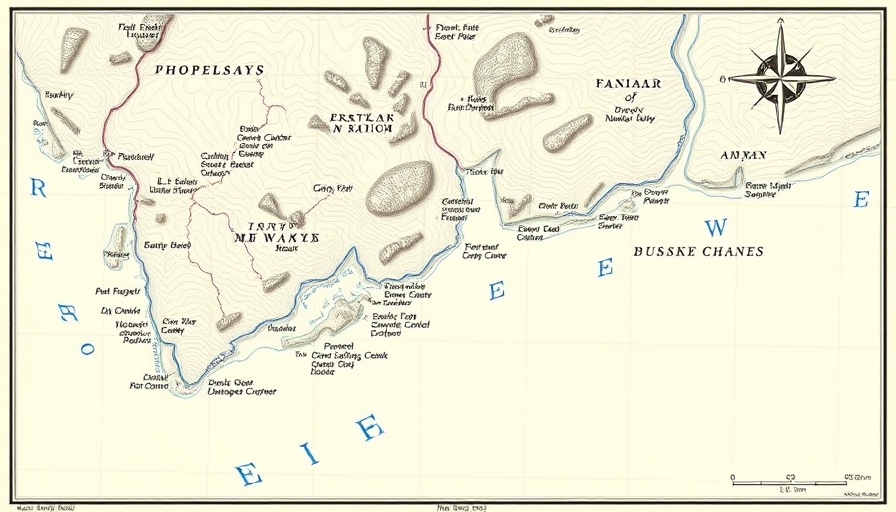
Nazi Creek's Name Change: A Long Overdue Transition
For decades, a seemingly innocuous creek nestled in the remote Little Kiska Island of Alaska bore an emblematic name: Nazi Creek. The creek flowed quietly into the Pacific Ocean, but its designation spoke volumes about a tumultuous past defined by geopolitical conflicts and cultural sensitivities. In July 2025, after more than 70 years, officials officially renamed the creek, a decision that reflects an evolving understanding of history and the power of names.
Historical Context and Background
The name 'Nazi Creek' was not a reflection of historical presence but a tactical designation by the United States Army Air Forces during World War II. The creek was named to fit an alphanumeric grid developed for strategic military purposes, following the Japanese occupation of nearby Kiska Island in 1942. Ironically, it was American forces who chose this controversial name, not reflecting the brutal reality of war or the sentiments of the people affected. While Little Kiska was a battleground, it wasn't directly associated with the Nazi regime, thus presenting a dissonance that many believe deserved rectification.
Social Connection: Why This Rename Matters
The decision to rename Nazi Creek resonates deeply within cultural communities across the globe. Such geographical names can perpetuate narratives that are often unwelcoming or offensive. By renaming the creek, local authorities are acknowledging and addressing the need for sensitivity towards those negatively affected by historical conflicts. This change can foster a more inclusive dialogue, signaling a collective desire to acknowledge the past while promoting a future that respects diverse histories.
Future Predictions: What Lies Ahead for Place Names?
As modern society becomes increasingly aware of the significance of historical narratives tied to geographical names, one can predict a wave of name changes across various regions. This is not merely a matter of semantics but represents a broader cultural shift towards inclusivity and respect for diverse perspectives. Communities might see similar initiatives that encourage collaboration between governments and residents, which could further enrich local identity and history.
Counterarguments: The Conversation Around Name Changes
However, the decision to rename geographic features isn't without controversy. Some argue that changing names erases history and diminishes the lessons from past conflicts. This raises vital questions: How do we balance respect for history and cultural sensitivity? Should every name with contentious associations be subjected to change? These counterarguments highlight the complexity of place names and the myriad perspectives that exist.
Decisions You Can Make With This Information
This renaming serves as a reminder for individuals, especially parents and educators, of the importance of teaching history with a sensitive lens. Being aware of the language we use and the implications behind it can play a significant role in shaping young minds. Conversations around names of places and their relevance can be transformative, encouraging empathy and historical awareness in future generations.
Emotional and Human Interest Angles
For many, the renaming of Nazi Creek is more than a mere administrative action; it's a form of recognition and healing. It acknowledges the sentiments of families affected by the scars of war and offers a sense of closure. It allows for an opportunity to redefine and reclaim spaces, fostering a stronger communal identity that can look forward to the future with hope and unity.
As a community, we are reminded to reflect on our histories while championing a narrative that is inclusive and respectful. The name 'Nazi Creek' lingered for too long, overshadowed by a past that drew division rather than connection. Now, as we move forward, it's crucial to engage with our history thoughtfully, fostering a more positive legacy for the future.
Call to Action
We encourage readers to educate themselves on local history and engage in discussions surrounding geographical names in their own communities. Understanding the implications of these names can foster empathy and promote a culture of inclusivity.
 Add Row
Add Row  Add
Add 




 Add Row
Add Row  Add
Add 

Write A Comment